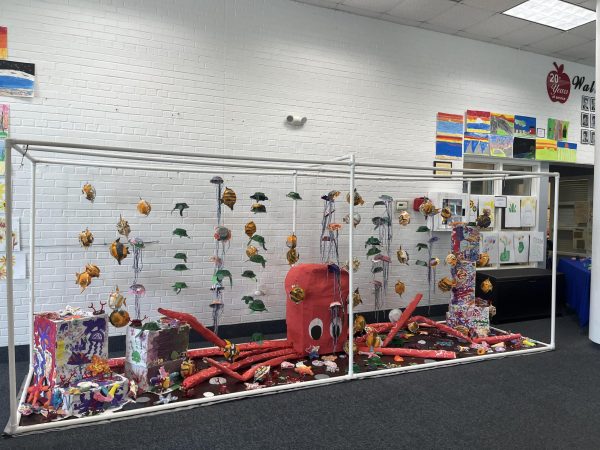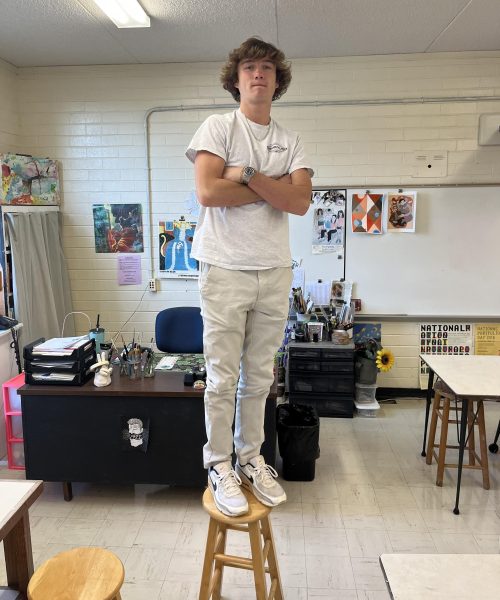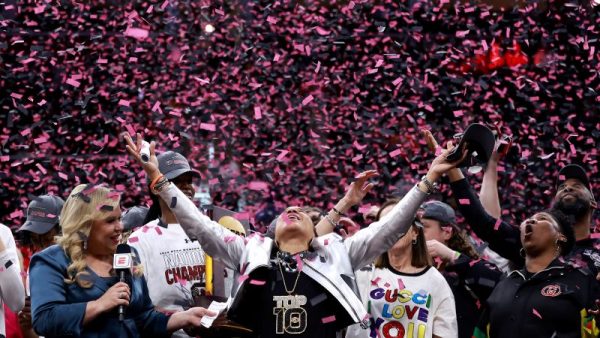An Even Madder City: Rapper makes resounding musical and social statement

September 8, 2015
The album strikes with the force of a revelation- from its in-your-face cover art, to the vulnerability, anger, and passion in Kendrick Lamar’s voice, to its heavy use of jazz, it is evident that it is not a conventional rap album. After almost three years of hard work following his commercially successful and critically acclaimed good kid, M.A.A.D. city, Kendrick’s latest album shows off his creative force. While To Pimp a Butterfly has claimed its spot in the annals of rapping history, its social relevancy has made it a cultural force.
To Pimp a Butterfly is not a mainstream rap album. Its heavy use of jazz, funk, and spoken word set the album apart from the work of other contemporary artists with the same level of commercial success. The song “i” (which was released as a single before the release of the full album) features a powerful spoken word at its conclusion. The final song in the album, “Mortal Man,” concludes with a German interview of Tupac (interestingly, the album was originally named “Tu Pimp a Caterpillar,” (as in, Tu-P-a-C) a nod to the rapper Tupac. Lamar replaces the interviewer’s questions with his own, making a powerful statement on the rapping industry, income inequality, and civil rights.
Kendrick Lamar also showcases his prodigious rapping skills throughout the album. In “For Free? (Interlude),” Kendrick raps at a frenzied, impassioned pace with the fast flowing jazz, a feat few other rappers could pull off. In “The Blacker the Berry,” the rapper the rapper begins with the lines “I’m the biggest hypocrite of 2015,” and goes on to make a statement on black rights and black-on-black crime. In the song, Kendrick raps with an intense, furious tone that immediately arrests the listener.
Lamar goes on to make other important social statements. He states that the song “King Kunta” deals with the “history of negative stereotypes all African-Americans have to reconcile.” While other contemporary artists have made similar statements on inequality and black rights, few have done so with the level of talent and passion Kendrick has. Kendrick’s use of jazz and his freestyle-like rapping are not novel, but they do force critics to regard him as one of the most prominent artists today. And while hardcore rap is not for everybody, To Pimp a Butterfly’s musical and cultural relevancy has and will keep it on the tip of many people’s tongues.










